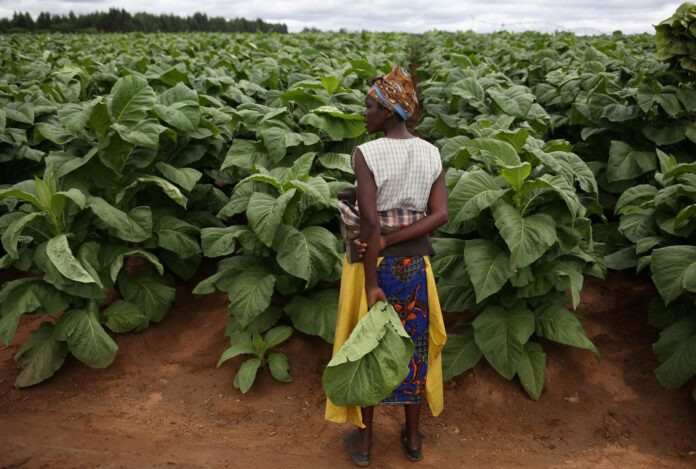Farai Mabeza
Small-scale tobacco farmers are behind schedule in preparing their land for the cropping season with draught power shortages crippling activities although there are high expectations for an increase in hectares of around 10 percent compared to last season, the Zimbabwe Tobacco Association has said.
In a recent report, the association revealed that 1 576 new registrations for the 2020/21 season were recorded with the number of farmers rising to 93 298 tobacco growers while a total of 940.328kgs of seed has been sold, up 27 percent rise compared to the seed sold in the 2019/20 season.
There are, however, fears that there could be some double counting of amounts bought by growers and contract companies although the seed bought does point to a potential increase in the crop size but this would be dependent on water availability and rainfall.
The association said, at the time of reporting in mid-October, all areas, except one, had received moderate to heavy rainfall, which were very welcome and resulted in increased preparations for the season. إيه سي ميلان
“Seedbeds preparations are ongoing and ahead of last season. Lands preparations are, however, well behind due to the shortage of draught power, drier weather and high costs of mechanized tillage. باصرة Dams and rivers remain very low,” ZTA said.
An early crop forecast for 2020/21 is estimated at 200 million kilogrammes with continual declining viability due to unstable monetary policies over the past two seasons and declining sustainable curing fuel the greatest challenges affecting the industry.
There has also been a significant increase in the number of contractors with the association saying the increased activity, given a normal season, could result in an increase in hectares of around 10 percent.
Farmers have, however, raised a number of concerns which include insufficient water for planting out crops should rains delay, increased deforestation, unsustainable curing fuel from most contractors, high inputs mark-ups, outstanding sales proceeds from previous season, unknown contractors, insufficient levels of support by new contractors, veld fires and stalk destruction incomplete in many areas.
Large scale commercial farmers had also begun planting on the dryland crop with the association indicating that the activities were progressing well and may continue into November.
Area under tobacco is expected to remain the same from last season although the association added that more of the crop will depend on the rains as generally there are insufficient water reserves to do supplementary irrigation.
The larger producers’ concerns, according to the association, include rising US dollar costs against declining grower prices and reduced cash flow support, increased deforestation and insufficient industry controls and increased contractor activity chasing more production. كرة البولينج
The farmers association called on the Tobacco Industry Marketing Board memorandums of understanding to be reviewed and warned about increased water wars given declining water reserves, increased incidents of theft on farms with a few cases of robberies reported and the need for sustainable wages.
“Sustainable production concerns are increasing as are viability,” the association said.
It further noted that liquidity was very tight forcing more US dollar purchases decrying National Employment Council and National Social Security Authority debts as too high while calling for more accountability.
“Zimbabwe must not be seen as a cheap source of tobacco because of low wage levels. Exchange rate stability is welcomed and should be reflected across all sectors,” the ZTA said.
Non-payment of farmers’ proceeds for the 2020 season is still hanging over the sector with the producers now pushing for payment modalities for the 2021 season to be formulated early.
A few, small clean up sales are being held after 183.5 million kgs was sold at USD2.50/kg during the marketing season compared to 260.0 million kgs sold at USD2.03/kg in the 2019 selling season.
Auction volumes contributed a mere five percent in the ended marketing season and farmers expect decentralisation to continue.














